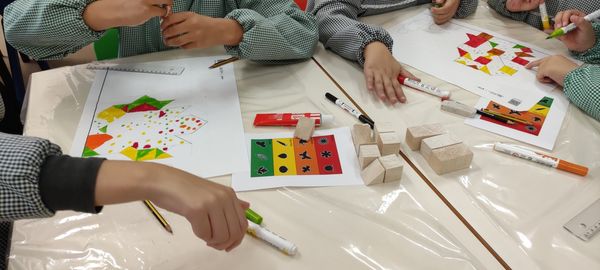Brazil is a continental country with more than 200 million inhabitants and very different realities, cultures, temperatures, and environmental diversity. 85% of the population live in urban areas. The state of Paraná is one of the three states which make up the Southern region of the country. Its demographic density is 52.4 inhabitants per square kilometer, and it concentrates 5.5% of the population of Brazil (population census of 2010). Curitiba is the capital of the Paraná state. Its population is around 1.9 million people. It is also the hub of the metropolitan region of Curitiba, comprising 29 municipalities, a population of 3.5 million inhabitants and very diverse urban, socioeconomic and geographical contexts.

Source: Wikipedia. Região Metropolitana de Curitiba. Adapted
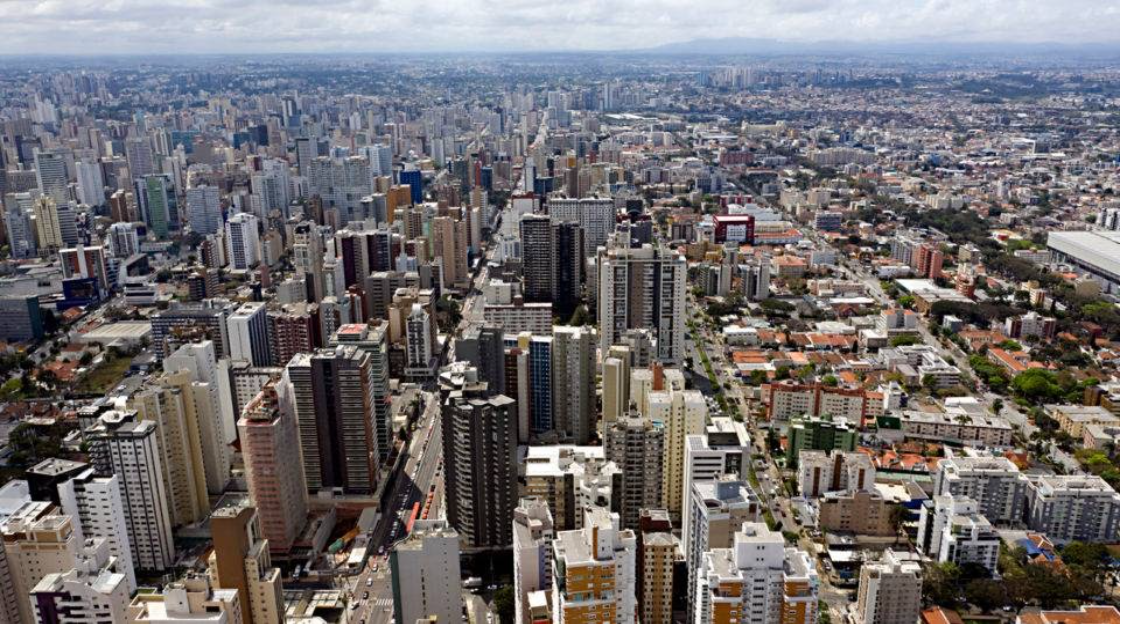
Source: Gazeta do Povo. Zoneamento. O que Curitiba será quando crescer? Lei prevê uma capital mais diversificada. Credits: Foto: Gabriel Rosa
Curitiba is recognized for its urban planning, mainly developed during the XXth century and aimed at spatial planning, impacting until today the quality of life in the city. However, much progress is needed, since it is no longer possible to analyze and plan the city in isolation, without considering the influence of its public policies on the municipalities of the metropolitan region. Especially when considering the relationship of extreme dependence on the capital by neighboring regions with regard to environmental and health issues, such as the destination of solid waste, water supply, and food production.
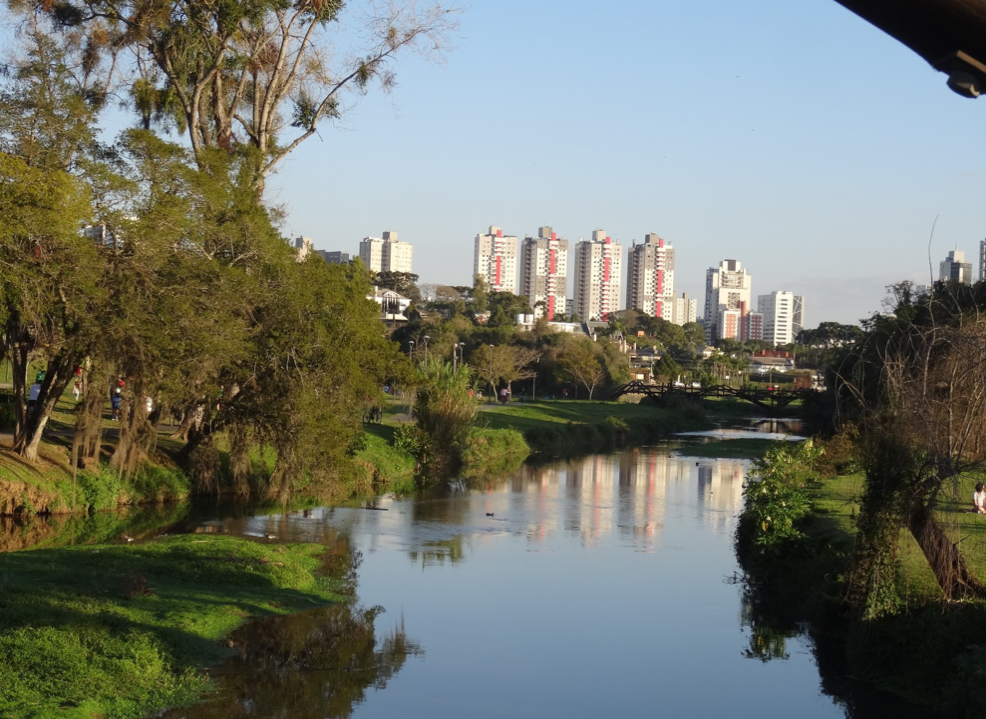
Barigui Park and Barigui River, Credits: Luza Basso
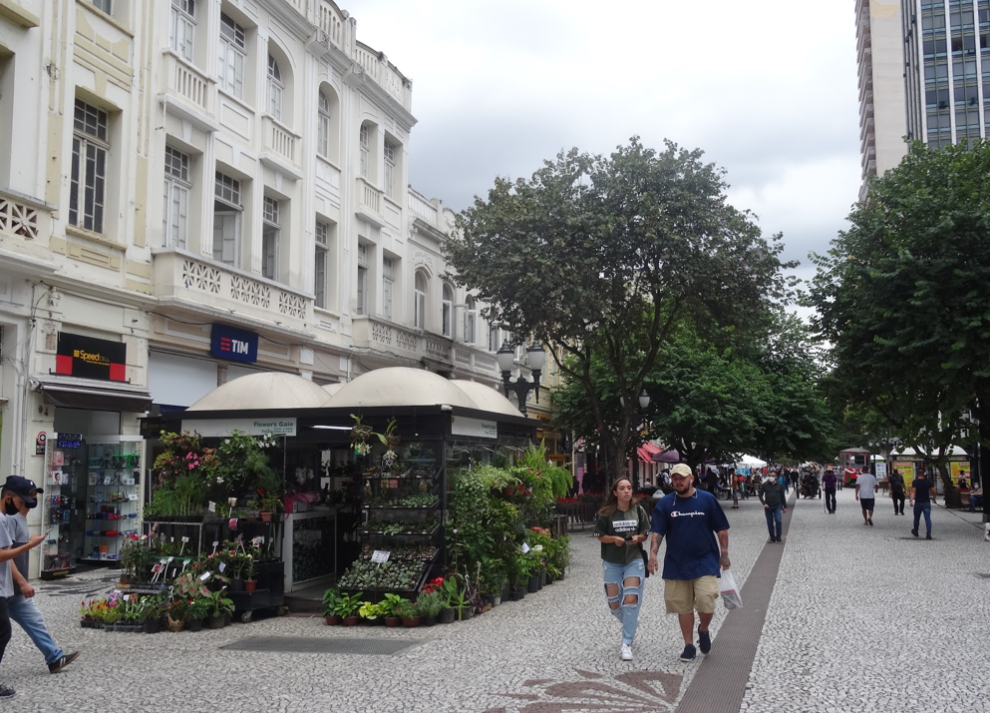
Source: XV de Novembro Street, in the center Credits: Luza Basso
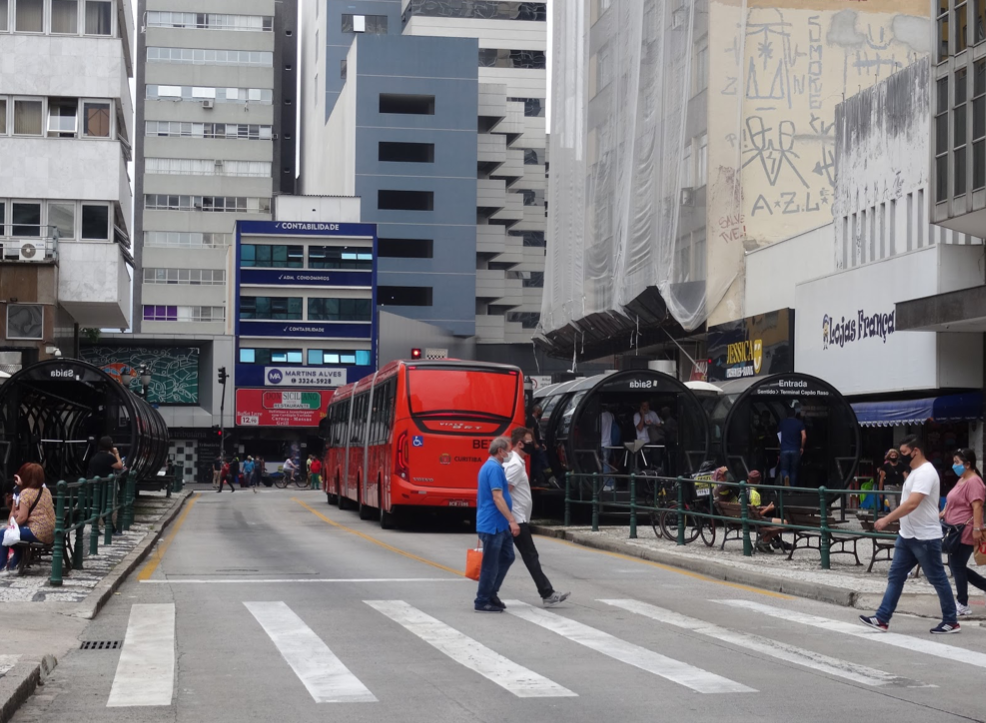
BRT stop, in the center, Credits: Luza Basso
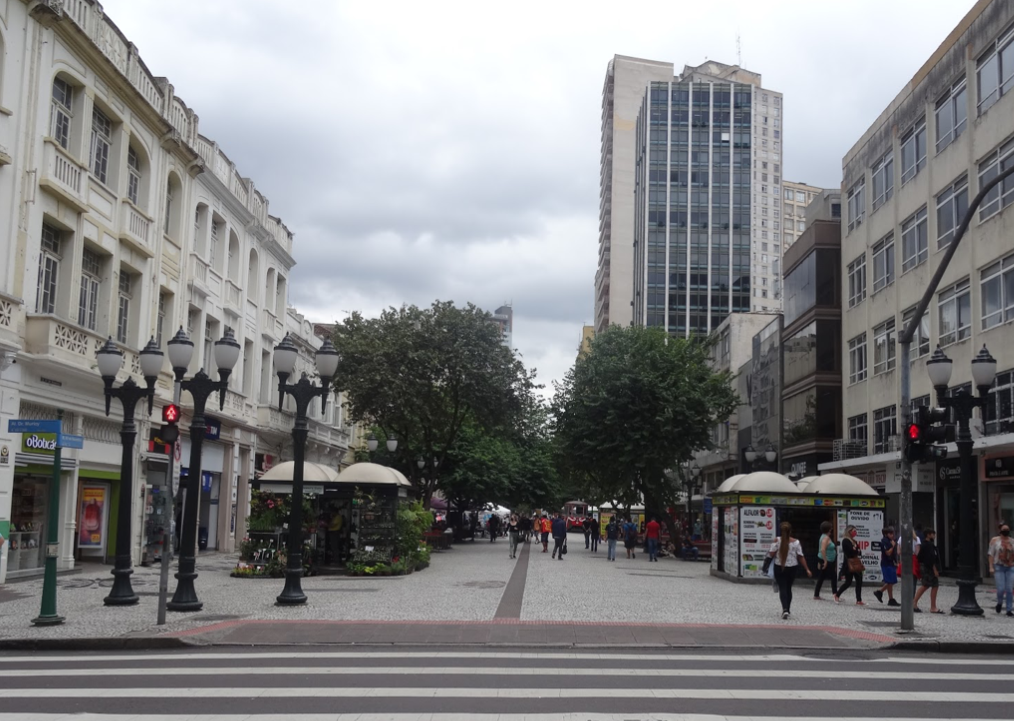
Source: XV de Novembro Street, in the center, Credits: Luza Basso
However, although little known, there are strong marks of social inequality in the municipality: more than 450 irregular settlements with about 50,000 families living in these communities.
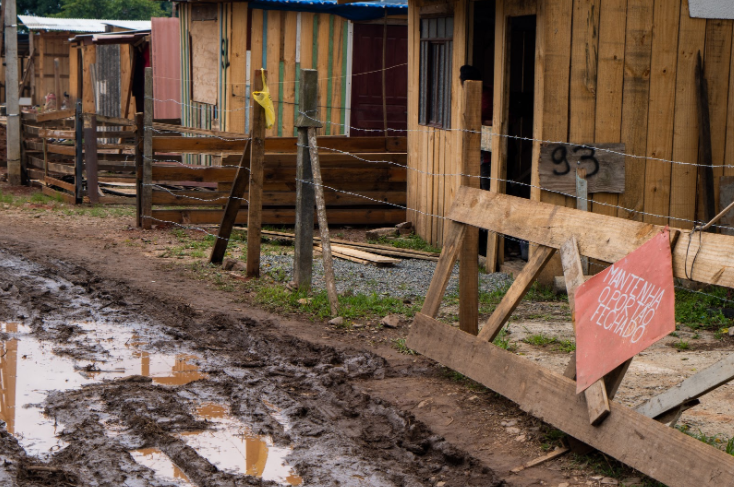
Irregular occupation area, where around 300 people were dumped, in December 2020.
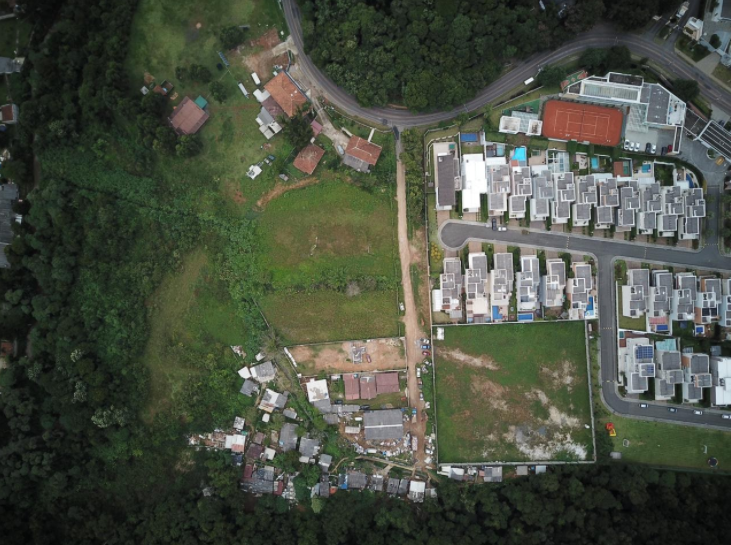
A new irregular occupation in a neighborhood in Curitiba. Credits: Ivo Reck
From political challenges to political opportunities
The effects caused by the pandemic in China, Europe and the USA were already known when the Coronavirus hit Brazil, and the country was on alert. However, the federal government was in denial regarding these effects and did not adopt an exemplary stance in relation to the recommendations to avoid contagion of the virus. During the pandemic, the federal government has also disregarded the global movement towards the preservation of the environment, by reducing environmental standards in relation to the historic and natural heritage, stimulating the expansion of road infrastructures, and disrespecting the fundamental democratic principle of a broad participation of the population in decision-making. This political context has not been favorable to the successful management of the pandemic crisis.
However, the president of the Commission for the Environment, Ecology and Protection of Animals of the Legislative Assembly of Paraná state in Brazil, state deputy Goura Nataraj (elected in 2018 with more than 37,000 votes), has been pushing forward a collaborative way of doing politics, as well as opening space for popular participation. He has represented the commission as URBiNAT’s Observer since early 2020.
The commission has been denouncing irregularities in environmental measures and proposing sustainable and democratic solutions, namely through public hearings and mobilization around infrastructure works with a considerable environmental impact. As an example of the results of such mobilization is the legal decision of Brazilian Federal Supreme Court against the reopening of Estrada do Colono that would have cleared 20 hectares of Iguaçu National Park.
The president’s commission is also a member of the commissions of the legislative assembly for culture, human rights and citizenship, Mercosur and international affairs. Even before his state legislative mandate, as city councilor of Curitiba, Goura has focused the mobilizing issues of:
- occupation of the public and empty urban spaces, namely by encouraging the use of public spaces for free cultural activities (more details in the booklet “Occupy the street” available at https://bit.ly/38UhUPB);
- humanization of childbirth;
- school meals, with debates around its quality (read more in Portuguese at https://bit.ly/3nQACeV);
- incentive to urban agriculture (such as municipal law 15.300 / 2018, more information available at https://bit.ly/2LZa9yD);
- nature protection;
- active mobility (through non-motorized means, based around human physical activity) with debates and booklets for the expansion of cycle paths in articulation with working groups involving community protagonists and universities.
In the frame of Goura’s state legislative mandate, these mobilizing issues have been expanded, in line with an integrated agenda for inclusive cities, to the monitoring of human rights, in particular of specific segments of the population: homeless people, people living in irregular occupations, LGBT people, prison inmates, traditional communities and indigenous/native peoples.
Urgent nature based solutions for the city
The current health situation has made explicit socioeconomic inequalities and the environmental imbalance generated by the last generations. This requires a further attention to vulnerable populations, environmental impacts of modern life, as well as imminent action to propose sustainable solutions on the short, medium and long terms. In fact, the coronavirus pandemic opened up social wounds, widened differences and forced extreme actions to contain its spread. It brought us a new meaning of values and reflection on the development we are looking for.
Recognizing nature as a fundamental part of cities is something that needs to mature immediately in the consciousness of the majority of the population, including public managers. The protection of parks and units of conservation of the environment is what guarantees us the quality of life, because it guarantees us the water and the prosperity of the ecosystem.
In the midst of a pandemic, we realize how fragile humanity is and linked to the conditions of the environment. The break in routine, the distancing of loved ones, the possibility of losing them, the appreciation of essential services brought new lights to human thought. We live in a moment of reflection, inversion of values and redefinition of what development is.
For this reason, the partnership with an urban regeneration project through solutions based on nature contributes to cope with pandemic scenario in Brazil. Because the exchange of experiences points out that it is possible to achieve feasible solutions in co-participation with the population for the sustainability of the urban environment in a multifunctional way, involving actions from urban infrastructure to the quality of life of the less favored populations and our relationship with the environment.

Commission for the Environment, Ecology and Protection of Animals of the Legislative Assembly of Paraná state in Brazil – ALEP
Source: Flickr of Mandato Goura. Comissão do Meio Ambiente – CPRA.
Credits: Oruê Brasileiro
Article written by Isabel Perotti, Political Advisor and Luza Basso Driessen, Projects Advisor
Team members of the state deputy Goura Nataraj, representing URBiNAT’s Observer, the Commission for the Environment, Ecology and Protection of Animals of the Legislative Assembly of Paraná state in Brazil





